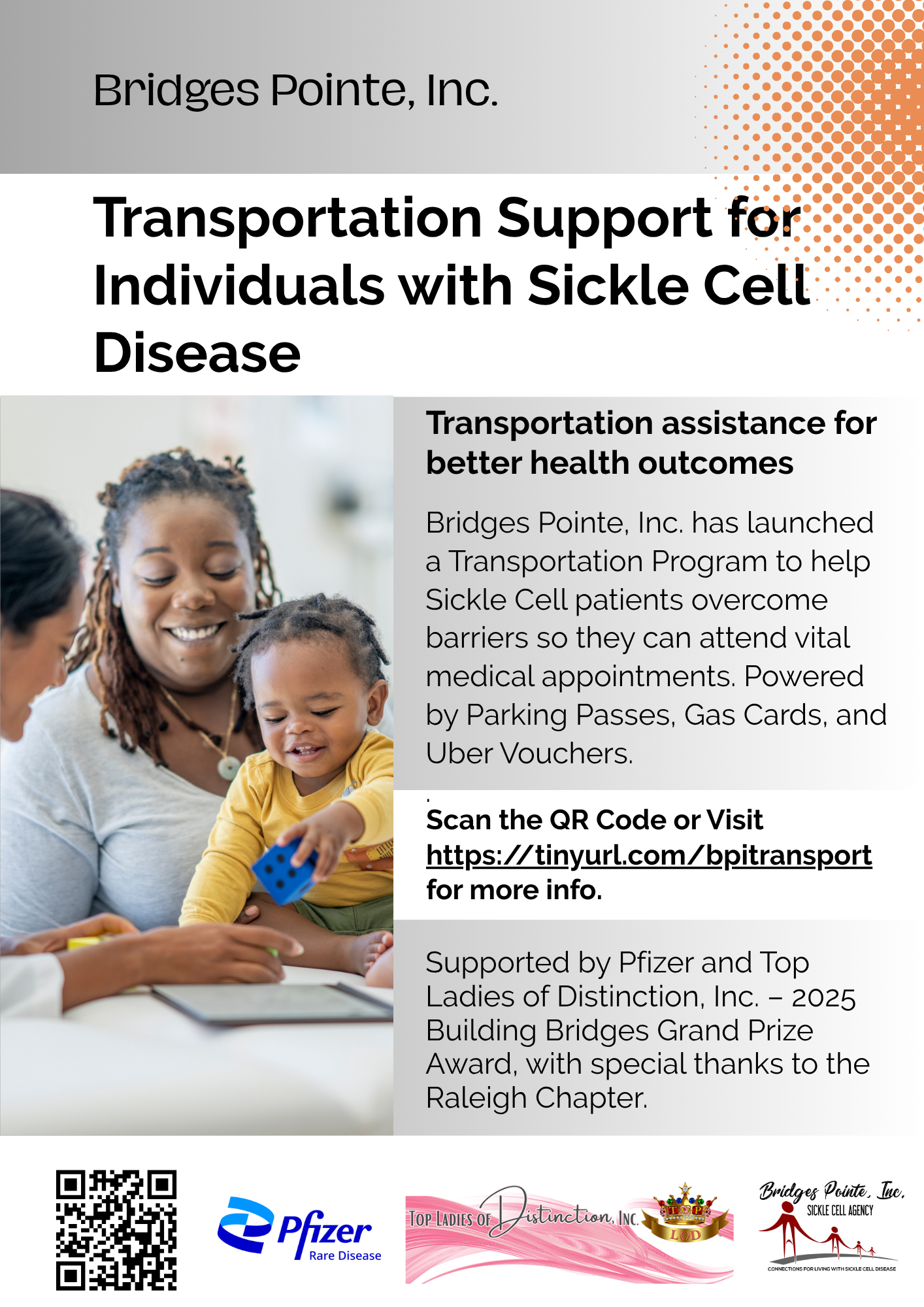Many patients and their families become emotionally worn out from the problems associated with sickle cell disease. Occasionally, patients or family members become stressed and even depressed. These feelings are completely normal and common. We are fortunate to have a team to help you and your family cope with these feelings.
Many families benefit from group and/or private counseling sessions. If you are experiencing difficulties with school, employment, or the demands of daily living, our staff is readily available to help you address these issues and/or refer you to the appropriate health care professional.
Please ask to speak with our social worker or one of our staff by phone or during a clinic visit. You may also schedule an appointment in clinic with TBA, clinical psychologist. She is in the sickle cell clinic on Mondays and Wednesdays. You can also see her at her alternate location located at the Duke Pain Clinic near Duke Regional.
Sickle Cell Support Group - Wake County
Meetings for the Wake County Sickle Cell Support Group are held bi-monthly and take place on Zoom at 7:00pm on the first Friday of every other month: February, April, June, August, October and December. In person meetings are also held twice a year in June and December at Mount Peace Baptist Church: 1601 Martin Luther King Jr Blvd, Raleigh, NC 27610.
Contact Information:
wakecountysicklecell.org
wakecountysicklecell@gmail.com
P.O. Box 37612 Raleigh, NC 27627
Transportation
Getting to your appointments should never be a barrier to care. Several programs can help patients and families travel safely to and from clinic visits.
Bridges Pointe Inc. - Sickle Cell Agency
Bridges Pointe, Inc. is a local community-based organization dedicated to improving the lives of individuals living with sickle cell disease. The organization helps patients and families build independence, strengthen their ability to thrive, and connect with vital community resources.
Through partnerships with local groups, statewide programs, and academic and medical institutions, Bridges Pointe raises awareness, provides educational support, and advocates for improved access to healthcare. Their efforts serve children, adults, and families affected by sickle cell disease, creating a strong network of care and support.
Bridges Pointe offers transportation assistance to and from clinic appointments for patients with sickle cell disease.
-
Assistance is coordinated virtually, by mail, or through in-person meet-ups.
-
Consent forms and transportation requests require a 2–3 business day turnaround for processing.
